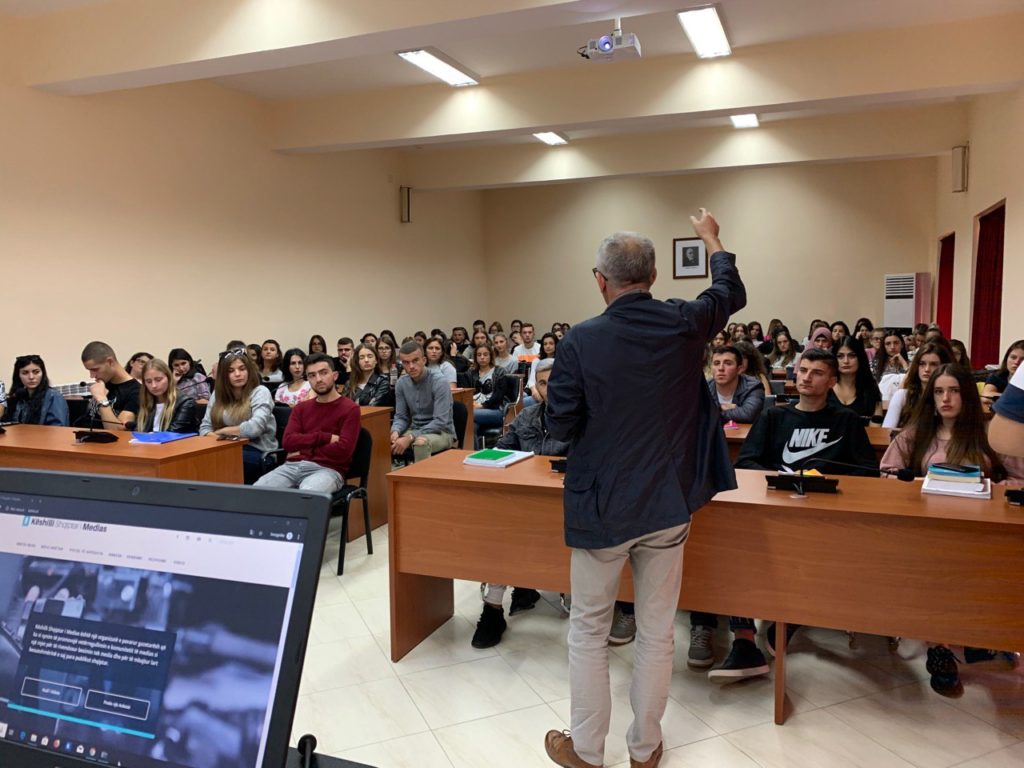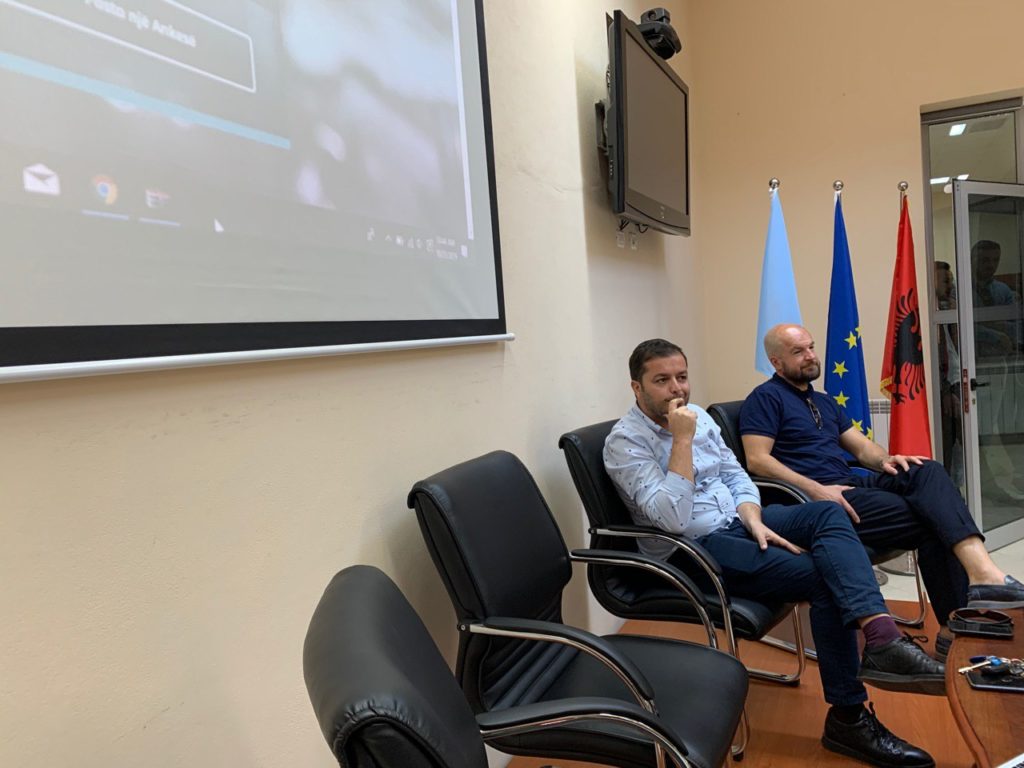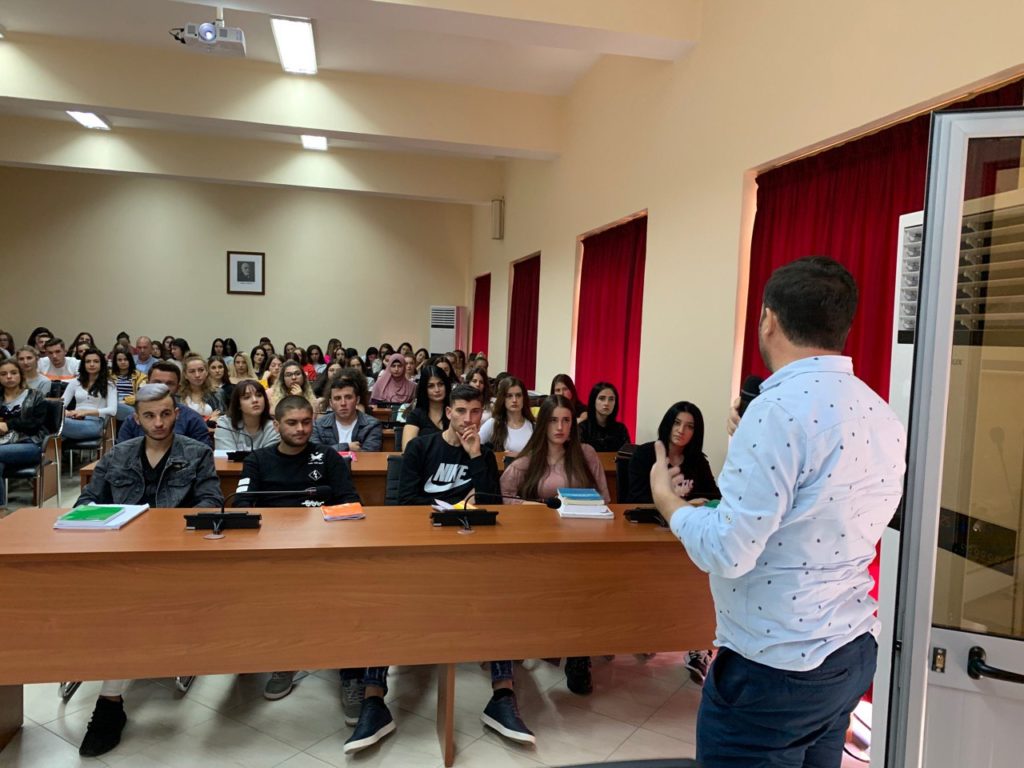* from Aleksandra Bogdani, BIRN
Representatives of the EU, the OSCE, the Council of Europe and the United Nations unanimously criticized the violation of freedom of expression through draft laws on online media control, and called on lawmakers to take a step back.
International institutions invited in the round of consultations on the “anti-defamation package” unanimously on Monday criticized the Rama government’s draft laws on regulating online media at the Law Commission.
Representatives of European Union, OSCE, Council of Europe and United Nations Commissioner for Human Rights voiced concerns over the violation of media freedom in Albania and called on lawmakers to take a step back with the proposed bills.
Scheduled to take place initially at 10am, the meeting with representatives of international organizations was postponed for two and a half hours and started again late, as Socialist MPs were present at Prime Minister Edi Rama’s marathon presentation of which he called “special anti-PKK packages”.
Upon arriving at the chamber, the Law Commission Chairman Ulsi Manja spoke of the drafts as “improved” and “agreed with the vast majority of internationals and especially the OSCE”, a claim that heavily stonewalled with the opinions expressed from representatives of these organizations.
Deputy Head of the EU Delegation to Tirana, Monika Bylaite, said at the beginning of her speech that the Commission had submitted its comments twice in February and June and hinted that not all concerns about freedom of expression were taken into account.
“The Commission proposes less agressive approaches, such as the media self-regulation. European and international standards on freedom of expression are key in this process and I urge the commission to fully take them into account, ”said Bylaite, who added that the EU shares concerns that the increase of AMA’s competences affects freedom of expression.
Irina Radu, head of the OSCE’s Media Office, initially disputed the statements of the majority of the MPs that the drafts had been agreed with the OSCE, adding that despite some improvements there were still concerns.
“Our office in Vienna has helped and hired experts on this legislation at the request of the Albanian prime minister from the beginning, but it is not the same as saying that the OSCE approved these draft laws,” said Radu at the roundtable.
“We are concerned that the AMA is heavily present in the law. We would like the issues to be settled in the court and in no way by AMA. We notice that the fines have been reduced, but they are still disproportionate,” she added.
In a diversive attempt, the legal package rapporteur Klotilda Bushka underestimated the criticism of EU and OSCE representatives in Tirana, claiming that the opinions of the Vienna Office for Media Freedom and the European Commission in Brussels were taken into account.

Bushka and Hysi, the 2 Albanian co-relators of the socalled “Anti-defamation” package | Photo : BIRN
“The last legal opinion from Vienna came in October and all their comments were reflected in the draft prepared on 12 November 2019. I thank the EU and OSCE experts for their expertise,” Bushka said.
“We have a long process, almost a year of consulting so much. It is time to be concrete and start discussing the articles in detail, ”she suggested.
Along the same lines, co-rapporteur Vasilika Hysi asked for concrete opinions from representatives of the Council of Europe on how hate speech, child protection, xenophobia or homophobia can be restricted – which according to her are commonly found in portals.

Vice/Chairman of the EU Delegation in Tirana, Monika Bylaite and the Expert of te Council of Europe, Dierde Kevin – Photo – BIRN
But Council of Europe expert Deirdre Kevin attacked the essence of the purpose of the bills, not considering the article-by-article discussion to be useful. In an exhaustive analysis, Kevin said the government’s draft laws run counter to a series of Council of Europe recommendations and resolutions promoting self-regulation in the media.
“Looking at both versions, the purpose of these amendments is almost the same, despite minor changes referred to by the OSCE. So we can briefly discuss changes to the essence and purpose of the law, which puts online publications in a statutory regulation regime that is considered normal for audiovisual media and licensed entities only,” said Deirdre Kevin, considering the government’s proposal unusual.
“… the essence of the purpose of the law is again problematic and does not meet the standards of freedom of expression,” she said, stressing that the standard is self-regulation and addressing complaints through the media council.
The Council of Europe expert also dismissed the government’s claims that the bills address disinformation and hate speech, adding that they are more focused on defamation claims.”
In the multitude of issues that make this process complex, it is difficult to imagine how the Regulatory Authority could respond within 72 hours to any particular complaint because the court notes that there are different levels of protection for people and politicians are less protected against criticism. There are also demands to separate facts from judgments and opinions, ”she stressed.
Kevin asked if the bill also included newspaper websites, and following the “No” response from reporters, deepened her criticism on the grounds that the draft was both discriminatory and unfair.
In the face of the mishmash created by the version changes, expert Kevin’s only suggestion to lawmakers was to “take a step back and consider restarting work, as this kind of regulation is not in line with Council of Europe standards and any European practices that can be identified ”.
Even UN representative Fjoralba Shkodra, who read a comment prepared by the Commissioner for Human Rights, did not spare criticism of the draft laws.
“The fines are very high and this measure could lead in the opposite direction, to silence journalists and investigative media,” Shkodra told the Commission.“
The issue of rights must be resolved under the jurisdiction of the courts. The issue of fake news and disinformation needs to be resolved in promoting and strengthening the quality of the media and not by banning freedom of expression, ”she added.
In addition to unspared criticism, discussions at the Law Commission highlighted also some paradoxes. AMA Chairman Gentian Sala noted contradictions between the statements of international organizations, also adding that the AMA Board had made its position public. In a November 18 statement, most bodily members opposed changes to the AMA organic law.

Parliamentary Comission of Laws and Human Rights | Photo – BIRN
While the head of the Law Commission, Ulsi Manja, considered the criticisms as “different points of view” and he also called on AMA Chairman and international organizations, to submit the comments on the legal changes in writing.
Deputy Head of the EU Delegation, Monika Bylaite, once again reinforced the approach taken by the four organizations present at the roundtable.
“The four organizations here said the same thing, that the approach should be easier. We are for a self-regulatory approach, ”Bylaite said.
MP Ralf Gjoni who asked for a speech on behalf of the opposition, asked if the bill also regulates ERTV, the prime minister’s own straming tv on Facebook, and, while expressing his support for the regulation, criticized the fact that such an initiative comes to Parliament from Prime Minister Rama.
“The owner of ERTV and the owner of the Socialist Party brings legal initiative to the media in Parliament. While MPs are given this spoon-filled mess by the Council of Ministers or the Prime Minister and they are told to vote it, ”Gjoni said, adding that the bills should not be voted without 100% agreement with the internationals.
* This English version is a rough translation from the Albanian version
Copyright: Reporter.al










